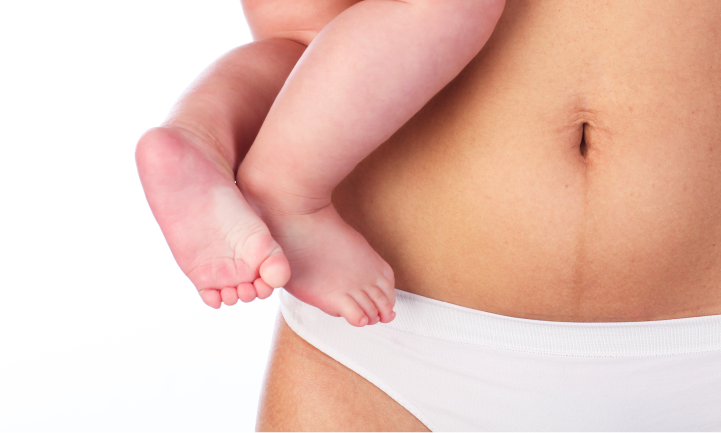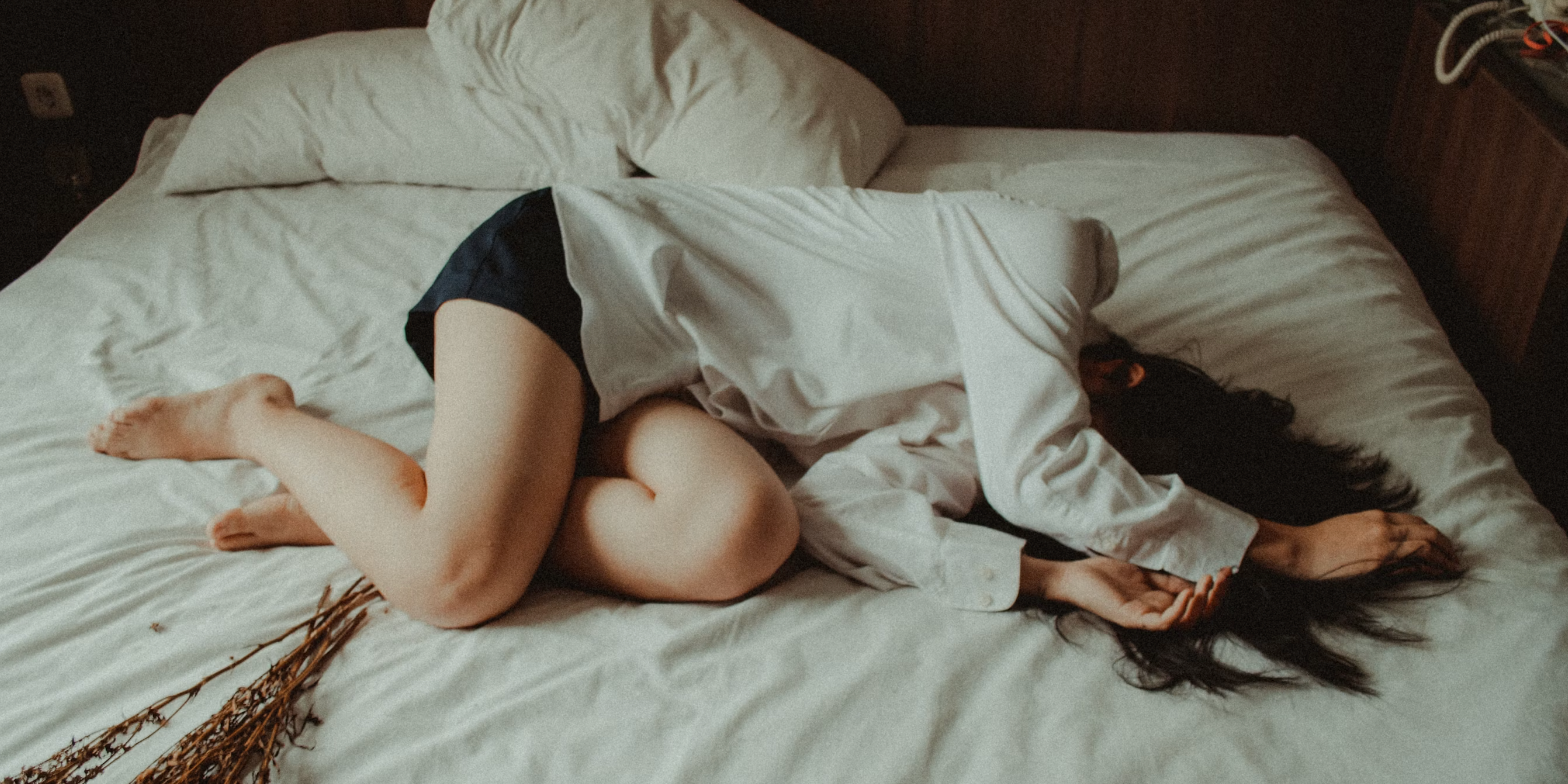Will My Periods Change After Pregnancy?

Pregnancy comes with great things — glowing skin, thick hair, and a new love for your body being just a few — but we'd argue that having a break from menstruation is one of the most welcome things to come with being pregnant! After giving birth, you'll probably start wondering when your period will return and what to expect from it.
Periods after pregnancy can be confusing and unpredictable, so we've put together this handy guide to help you along the way. Here's everything you need to know about periods after birth.
In a rush? Read this quick summary:
- Your first period after pregnancy is also called a postpartum period.
- When your period returns often depends on whether you decide to breastfeed. If you aren't breastfeeding, it could start as soon as 5-6 weeks after birth, but can vary if you are breastfeeding.
- It's common for your period to be different than before giving birth, including irregular periods, increased cramping, a heavier flow and small blood clots.
- You can get pregnant again in as little as three weeks after giving birth, even if your periods haven't returned yet.
- You should watch out for certain postpartum symptoms including heavy bleeding, severe pain, nausea and trouble breathing. These can indicate an infection.
When will my periods start again after pregnancy?
Your first menstrual bleed after birth is also called a postpartum period, and when it returns often depends on whether you decide to breastfeed. If you aren't breastfeeding, it could start as soon as 5-6 weeks after you give birth. However, if you are breastfeeding, the time can vary.
Some people who practice 'exclusive breastfeeding' (which means your baby is only receiving your breast milk) find they don't have a period for the entire time they're breastfeeding, while others notice it returns after a couple of months.
If you have had a vaginal delivery and your period returns quickly after birth, your doctor will probably recommend you avoid using tampons or menstrual cups during your first menstruation postpartum. This is because your body heals for a while after giving birth, and inserting products like tampons or menstrual cups can cause damage and/or irritation. Instead of using internal products, you are better to opt for something soft and comfortable that can be worn outside your body, like cloth pads or period underwear.
Why do periods take longer to return if you are breastfeeding?
According to the NHS, people who are breastfeeding don't get their periods as quickly because the hormone that causes your body to produce breast milk, prolactin, can stop your body from making the hormones that control menstruation.
What are the signs?
It's very common for your first period after your baby to be different than it was before giving birth. This is because your body will have to readjust to menstruating again, which means you might experience some of the following:
- irregular periods – especially if it returns while you're breastfeeding
- cramping that might be better or worse than before pregnancy
- a heavier flow
- spotting in between cycles
- small blood clots
Everyone's experience will be different post-pregnancy. Some people find their periods easier after pregnancy. This could be because the uterus has stretched out and relaxed. However, others find their periods are more complex, which may be due to the uterus having more tissue to shed each cycle.
As your cycle continues, you should notice that these symptoms slowly fade away, and things slowly begin to return to how they were before you gave birth. During your first postpartum year, it can be expected that your periods fluctuate in length, the time between cycles, and the intensity of bleeding. If you notice irregularities, speak with your doctor or midwife.
What should I expect from my first period postpartum?
After giving birth, you can expect bleeding and vaginal discharge, regardless of whether you delivered your baby vaginally or by cesarean delivery. Many women report their flow is much heavier in the first few weeks following birth, and clots are also increased. As time goes by, you'll also notice a vaginal discharge, also known as lochia. Lochia is a bodily fluid that usually looks clear, creamy white or red in colour.
The vaginal discharge usually continues for around six weeks, after which menstruation will usually start to return if you aren't breastfeeding. Some women feel they have started their period earlier than they actually have, because lochia can have the same appearance and colour as menstrual blood. If you aren't sure how to tell the difference between lochia and your period, here are a few ways to check:
- Lochia usually starts as bright red in colour and contains lots of small blood clots. You will probably notice your flow is heavy, and this lasts between 3-10 days after giving birth. After this, it will start to look creamy or white in appearance with a watery texture. If you notice bright red bleeding six or more weeks after giving birth, this is likely to be your period.
- If you notice more discharge increasing when moving around more and decreasing when resting, it's likely lochia.
- Lochia usually has a 'sweet' smell to it, as it is mixed with leftover tissue from your pregnancy. This is usually an easy way to tell it apart from your period.
It can also take some time for your cycle to regulate after birth. You might find that you have your first period, miss a cycle, and then have another period that comes earlier than it usually would.
Is it normal to have irregular periods after giving birth?
If you're experiencing irregular periods after pregnancy, you can feel reassured that you're not alone. It's normal for your periods to be irregular after giving birth, and everyone will experience something different.
They could be irregular in length, meaning your cycle is longer or shorter than usual, and you might even miss a period. You could also notice your flow is irregular, meaning you might have a heavy flow one day, a light flow the next, followed by a heavier flow the day after.
As time goes on, things will slowly return to what used to be normal for you. If you notice your period goes missing for months, you have heavy bleeding, or there are any other symptoms, it's best to check in with your doctor.
Can I get pregnant again if my period hasn't returned?
You could get pregnant as little as three weeks after giving birth, even if your periods haven't returned yet. This is because ovulation comes before menstruation, meaning your body can get pregnant before you actually notice any menstrual bleeding.
Many women choose to take birth control after pregnancy, in order to avoid getting pregnant again after birth. All types of contraceptives are safe to use while breastfeeding. However, if you are looking to start contraception, it's best to wait three weeks, as this can increase the blood clots you will experience.
Will my periods be painful after giving birth?
After pregnancy, your uterus becomes larger and stretched out, which means there is more lining to be shed during menstruation. If you're breastfeeding, the hormones can also contribute to painful cramping. These factors combined can make your periods more painful than you're used to.
What postpartum symptoms should I look out for?
Be sure to call your doctor or speak with your midwife if you experience any of these symptoms, as some of these can indicate an infection:
- very heavy bleeding (soaking more than one pad every hour)
- bleeding with sudden or severe pain
- blurry vision
- dizziness, faintness, or confusion
- a sudden fever
- bleeding continuously for more than seven days
- blood clots that seem abnormally big
- foul-smelling discharge
- a severe headache
- nausea
- trouble breathing
How can I be most comfortable during my periods postpartum?
Life after pregnancy is full of lots of emotions, and managing your periods sometimes feels like another added stress! To ensure you're comfortable and leak-free throughout your periods, try something soft and gentle, like cloth pads or period underwear.
Our period pants are available in different absorbencies to cover every flow, including super heavy flows. They're also available in different styles, so you're bound to find something perfect for your post-pregnancy. Lots of new mums love our High-Waisted period pants for postpartum, to keep them leak-free for up to 12 hours every day.
Take a look at our period underwear and find the perfect pair for your journey after pregnancy!
- Tags: Periods



